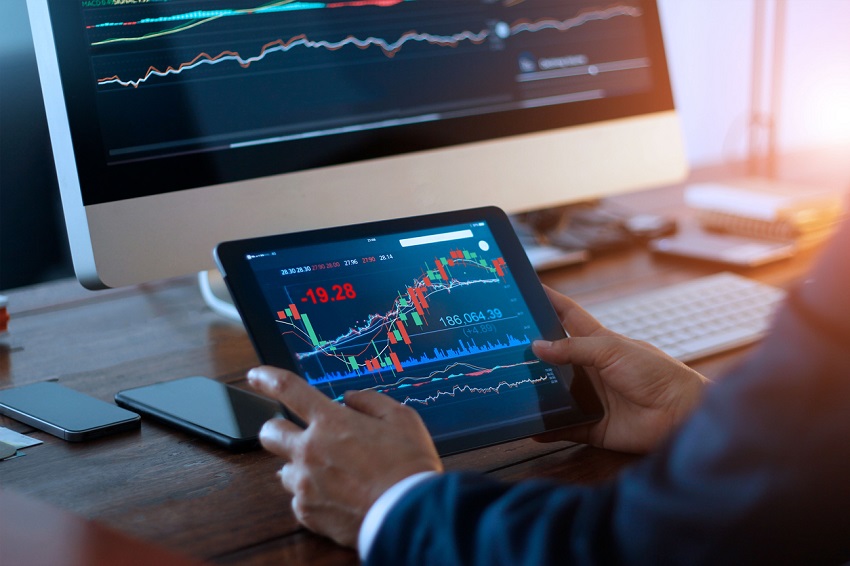
25 Jul How Forex Trading Works: A Beginner’s Guide
If you have ever wondered how people make money trading currencies or heard about forex but don’t know where to start, you’re in the right place. Forex, short for foreign exchange, is the largest and most liquid financial market in the world. In this article, we’ll explore the basics of forex trading and how it works, helping you gain a solid understanding of this exciting financial venture. The article is supported by yourbigbusiness.org
Introduction to Forex Trading
- Understanding the Forex Market: Forex trading involves buying one currency while simultaneously selling another. The objective is to profit from the fluctuations in exchange rates between the two currencies.
- Who Participates in Forex Trading: Various entities participate in the forex market, including governments, central banks, financial institutions, corporations, and individual traders.
- Why Forex Trading Is Popular: Forex trading offers high liquidity, accessibility, leverage options, and the ability to trade 24 hours a day, five days a week.
How Forex Trading Works
- Currency Pairs: In forex trading, currencies are always traded in pairs. Major currency pairs like EUR/USD and GBP/USD are the most commonly traded ones. Discover first class forex funds.
- Understanding Exchange Rates: Exchange rates determine the value of one currency relative to another. They fluctuate based on various factors such as economic indicators, geopolitical events, and market sentiment.
- Pips and Lots: Pips are the smallest price movements in forex, and they determine profit or loss. Lots refer to the volume or size of a trade.
- Leverage and Margin: Leverage allows traders to control larger positions with a smaller amount of capital. However, it also amplifies potential losses.
- Long and Short Trades: Traders can take either a long position (buying) or a short position (selling) on a currency pair, depending on their market analysis.
- Factors Influencing Exchange Rates: Explore the various factors that influence currency exchange rates, such as interest rates, inflation, political stability, and economic performance.
- Technical Analysis: Learn how traders use charts and technical indicators to analyze past price data and identify potential future price movements.
- Fundamental Analysis: Understand how economic indicators and news events impact the forex market and how traders can use this information to make informed decisions.
- Risk Management: Discover the importance of risk management strategies in forex trading to protect capital and minimize losses.
Getting Started in Forex Trading
- Choosing a Reliable Forex Broker: Research and select a reputable forex broker that meets your trading needs and provides a user-friendly platform.
- Creating a Trading Plan: Outline your trading goals, risk tolerance, and strategies in a well-defined trading plan.
- Demo Trading: Before risking real money, practice trading with a demo account to gain experience and confidence.
- Starting Small: Begin with a small trading account and gradually increase your exposure as you gain proficiency.
Common Mistakes to Avoid
- Overtrading: Avoid excessive trading, as it can lead to emotional decision-making and unnecessary losses.
- Ignoring Risk Management: Neglecting risk management principles can expose your account to significant risks.
- Chasing Losses: Trying to recover losses quickly can lead to impulsive and irrational trading decisions.
Conclusion
Forex trading is an exciting and potentially rewarding endeavor for those willing to put in the time and effort to understand how the market works. By grasping the basics of currency trading, utilizing proper risk management, and continuously learning from experiences, traders can increase their chances of success in the dynamic world of forex.
FAQs
Is forex trading risky?
Forex trading involves a degree of risk, like any other financial market. However, with proper risk management and a well-defined trading plan, the risks can be managed effectively.
Can I start forex trading with a small amount of money?
Yes, many brokers allow traders to start with small accounts. It’s essential to understand leverage and risk management when trading with a smaller capital.
What’s the best time to trade forex?
The forex market operates 24 hours a day, five days a week. Different trading sessions overlap, offering opportunities throughout the day.
Are there any shortcuts to success in forex trading?
Forex trading requires dedication, learning, and experience. There are no shortcuts to sustainable success in this market.
Can I trade forex without prior experience?
While prior experience can be beneficial, many resources and educational materials are available for beginners to learn and start trading forex.

No Comments